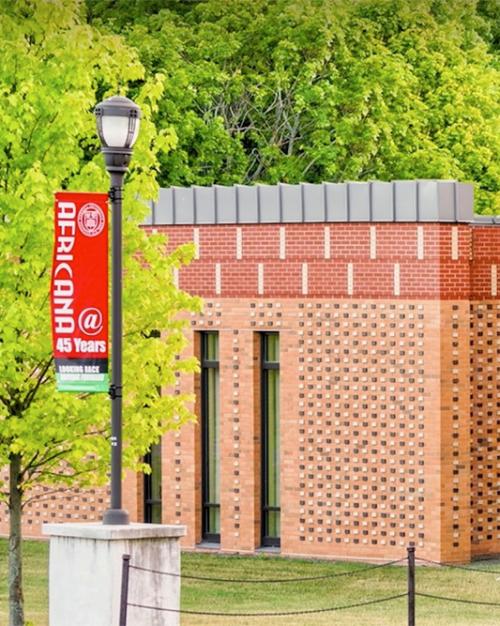Like the whole world, we as Cornell’s Africana faculty witnessed the execution-style killing of George Floyd in Minneapolis by law enforcement officers. Millions have watched Floyd’s brutal murder on social media minute by minute, reinscribing his and our collective trauma with each view. The heinous murders of black women and men, in most cases by those who are supposed to uphold the law and protect us, are not a new phenomenon. In the last few weeks alone, Ahmaud Arbery in Georgia, Breonna Taylor in Louisville, and Tony McDade, in Tallahassee, have died at the hands of vigilantes and law enforcement. And those are among the few whose names we know.
Just a day before Floyd’s murder a video surfaced of a white woman in Central Park who called the police alleging that a black man, who simply asked her to leash her dog, was threatening her. Had her actions not been documented, and cooler heads not prevailed, her phone call could very well have extinguished yet another innocent black life.
These events are unfolding in the middle of a pandemic that is claiming the lives of black and brown people in disproportionate numbers compared to their white counterparts. On top of all that, we have a president in the White House declaring war on black people and their allies. We understand that we as faculty are part of an institution with students, faculty and staff who subscribe to political views across the entire spectrum. However, it is an indisputable fact that we are facing a president whose policies have been increasingly authoritarian and in violation of our constitutional right to protest and, hence, constitute a threat to the future of American democracy. He has consistently shown not only a lack of empathy, but also a total lack of understanding of his duties to all citizens. These racially motivated acts are endemic to the United States, whose foundations, as state or a system, are rooted in the racial slavery plantation system, which has produced structural inequalities guarded by policies and institutions that secure their continuity. The criminal justice administration and its corollary, the prison industrial complex, and the militarization of policing, are glaring examples of how this system has been institutionalized by the state. Lest we forget, Native American communities have suffered similar treatment from genocidal policies, theft of land, and other horrific injustices.Some of the responses to this violence point to a degree of misinformation and ill-will that are disheartening. Universities and institutions of education at all levels must broaden their commitment to eradicating the misinformation and lack of knowledge that undermine good faith and progress in public discourses.
We, Cornell Africana Studies, are dedicated to this mission. We led the way in the past in creating a field which addressed these issues. We are prepared to do so again as the university moves forward in this process. We applaud President Martha E. Pollack’s statement on these recent developments and her recent plan for the university in collaboration with local authorities, to combat the systemic disregard of Black lives and related issues at the university level. While we understand that the university is managing the crisis brought on by the Covid-19 pandemic, we call on the leadership to do even more and on an ongoing basis to ensure the safety of our students, more specifically, black and brown students, staff and faculty, when they eventually return to campus:
We trust that other universities, public and private institutions as well as individuals and groups, would rededicate themselves to both learning and confronting the injustices of the past for a better future for all. The injustice suffered by the African-American community does not start and end with police violence.The impacts of the enslavement of human beings and the lack of will (and desire) to confront the institutional and structural dimensions of the injustices that they spun must be confronted. The first step is to know, to speak truthfully, and to understand that citizenship, like justice, must be universal in any republic. The US constitution mandates it too. Our university should lead the way in educating America and, by extension, the world, on the place of anti-black racism in the very constitution and continuing unfolding of life in these United States. Image detail: David Hammons, Untitled (Flag), 2017. [Image courtesy of David Hammons]




